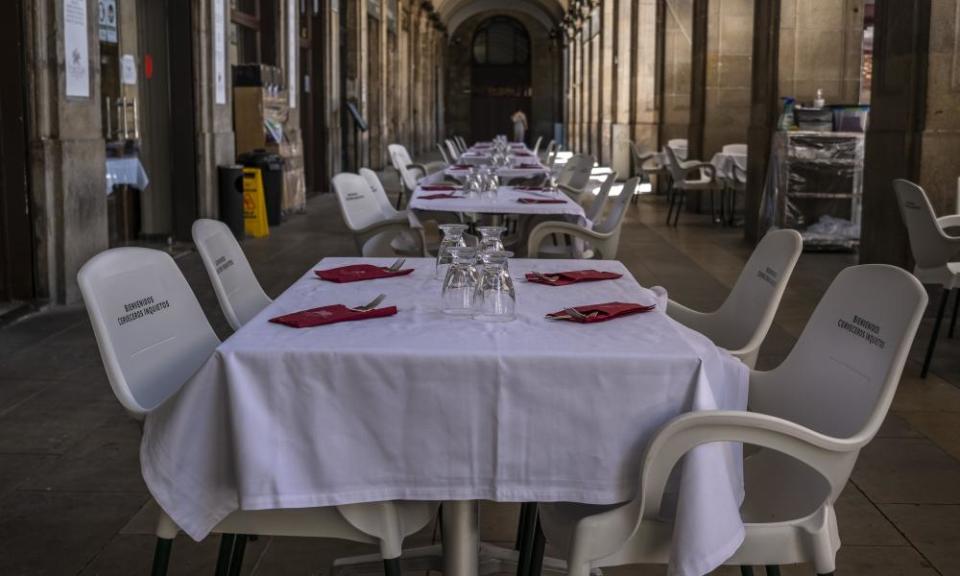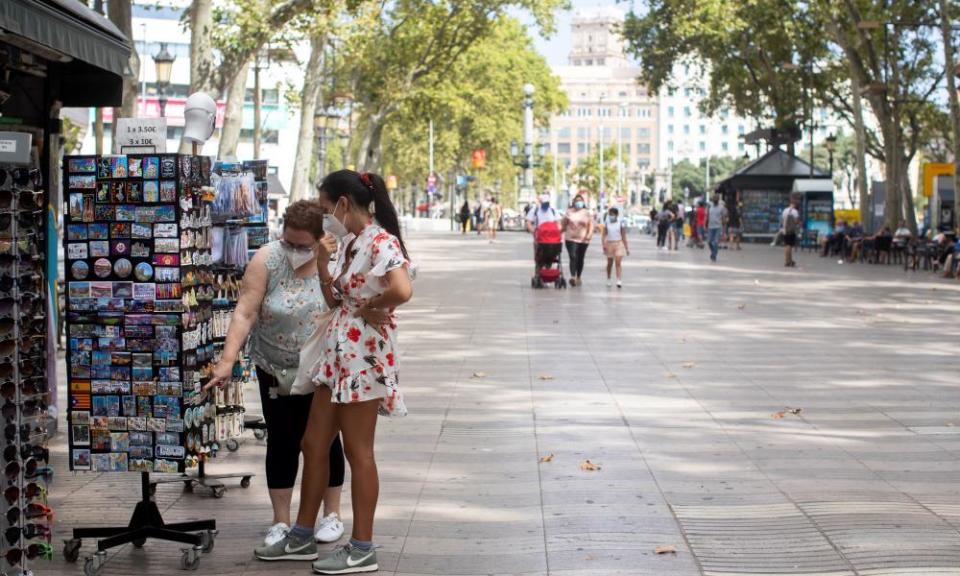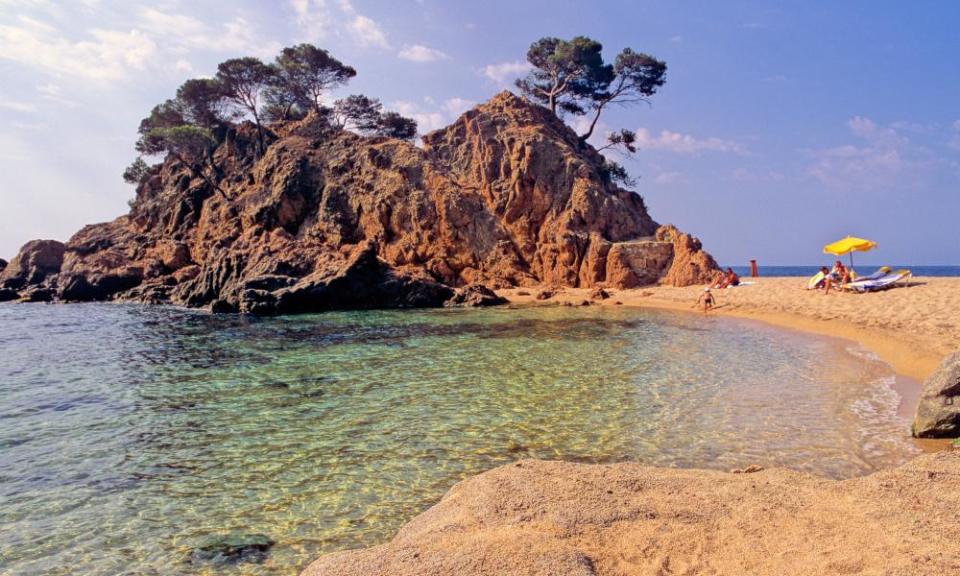Barcelona rethinks its reliance on tourism as bans keep foreigners away

It’s late July on Barcelona’s La Rambla and there are no takers for the Mexican hats and Gaudí mouse mats for sale on street stalls, nor any business for a solitary selfie-stick hawker. The city’s famous boulevard is usually a heaving mass of humanity; now it’s all but deserted.
French advice against travel to Catalonia and the UK’s de facto ban on travel to Spain have painted the country as Europe’s Covid-19 pariah, but many Spaniards feel they are being scapegoated.
“Some English people in a hotel here said London is much less safe, that people don’t keep their distance or wear masks, and it seems unjust if the situation in the country of origin is no better than it is here,” said Martí Sabrià of the Costa Brava hospitality and tourism association.
Just or not, the renewed travel bans have been the kiss of death to the Spanish hospitality industry: the small revival in tourist numbers after Spain’s lockdown ended on 21 June has now stopped in its tracks.

In Barcelona, businesses are furious that, when infections started to rise again in late July, Catalan president Quim Torra announced a lockdown he was not empowered to enforce. By the time he explained that the measure was merely advisory, “Barcelona in lockdown” had gone viral and hotels and restaurants were reporting cancellations.
Roger Pallarols, of the city’s restaurateurs’ association, laments the decision to advise people to stay at home while bars and restaurants were allowed to open. “Reservations fell by 50%: it’s closure via the back door,” he said, pointing out that, as the lockdown is only advisory, restaurateurs cannot furlough staff.
Catalonia as a whole is more dependent on foreign visitors than other Spanish regions
Jordi Artal is chef at the city’s Michelin-starred Cinc Sentits restaurant. Normally about 40% of his customers are foreigners, but he said even locals were now more reluctant to eat out. “We can survive for a few more months but if you call me next April and this is still going on, life will be tough,” he said. “Most of my staff are working part-time and we’re only open at weekends. We have high overheads and thin margins. We’re a staff of 16 or 17 people serving around 20 diners.”
Successive blows, beginning with the cancellation of the Mobile World Congress in February, have exposed Barcelona’s over-reliance on visitors, be they tourists, business travellers or overseas students.
Catalonia as a whole is more dependent on foreigners than any other Spanish region. It attracted 19.3 million visitors from overseas last year, almost half of them from France, the UK, Germany and the Netherlands, all currently advising against travel to Spain.
In Barcelona, much economic activity has simply stopped. Only around a fifth of hotels have reopened since the lockdown ended in June, and a number of those are expected to close in the wake of the UK announcement.
The worst-hit area is Ciutat Vella, the old city. As the local economy oriented itself almost entirely to tourism, soaring rents drove out traditional businesses and local residents. The hugely profitable holiday-apartment business so depopulated the area that, without tourists, there are not enough residents to sustain local commerce.
Appeals to landlords for rent cuts have fallen on deaf ears. The restaurateurs’ association says 90% of its members are having difficulty paying the rent and 38% of bars and restaurants expect to close permanently once furlough payments end on 30 September.

A quarter of jobs in Catalonia are likely to be lost as a result of Covid-19. Work has even come to a halt on Barcelona’s famous Sagrada Família basilica. When construction began in 1882, it was financed entirely by repentant sinners, but now the money all comes from tourists.
Resorts on Catalonia’s Costa Brava have also been hit by the sudden decline in French and British tourists. The French account for about 40% of business in some places. “The French haven’t imposed a quarantine and the younger ones keep coming, but a lot of older people aren’t,” said Sabrià. “We’re still hoping they’ll come in the autumn.”
Lloret de Mar has long been a favourite among young Brits drawn by “price, night clubs and alcohol”, according to Sabrià. But they mostly go on package holidays, and operators such as Tui have pulled out.
As Barcelona rethinks its future, many in city hall believe it should focus on being a cultural destination. Ferran Barenblit, director of modern art museum Macba, said: “Nothing is going to be like it was before. There’s been a lot of damage done. We’ve got less money and we have to rethink many things.”

 Yahoo Finance
Yahoo Finance 